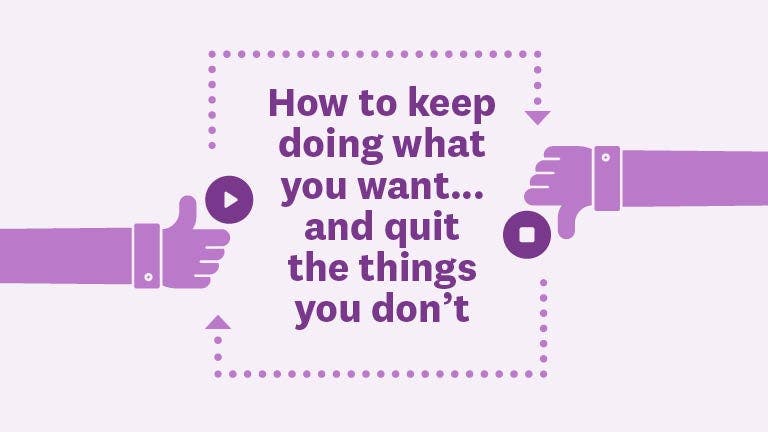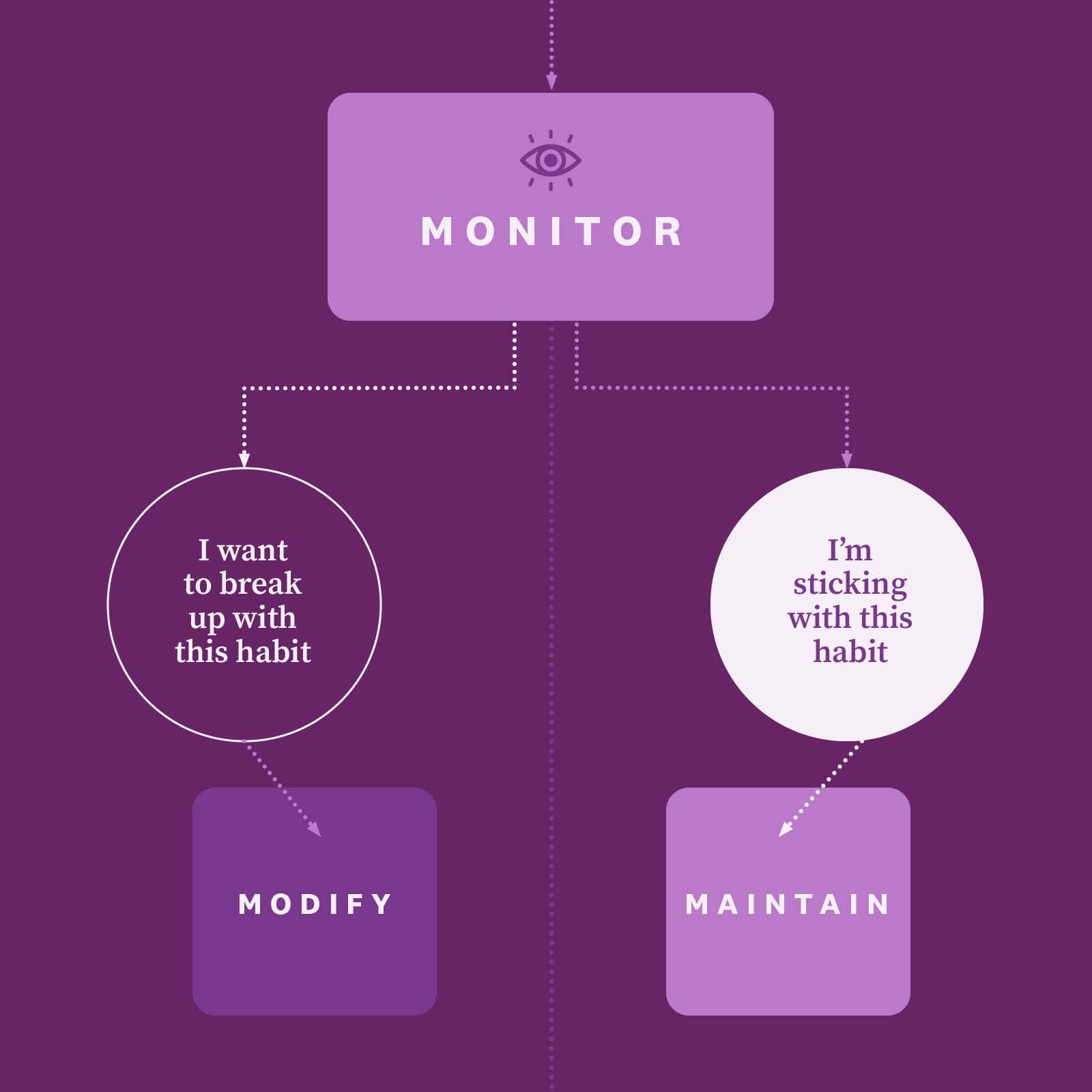How to monitor, modify, or maintain your habits


While it's certainly helpful to know the why behind weight loss - but at WW we equip you with the how to make sure you have a game plan for real life.
Our psychology is based in behaviour change, meaning we focus on simple actionable techniques you can easily apply to your real life to make better-for-you choices, gain skills for life, and lose weight.
Our panel of experts that develop a program that teaches you a new technique each week that is rooted in behaviour change psychology: giving you a roadmap to help make healthier changes.
A sneak peek at our weekly curriculum
Try this!
Think about a regular habit of yours that happens frequently. Take a look at it to become more aware of any patterns or factors that are keeping it going. Then, follow this chart.
Let’s dive a little deeper…
The next time you catch yourself in a habit—freeze!
- What happened right before it?
- What’s likely going to happen after?
- What triggered this habit to automatically start?
By paying close attention to what happens right before and after, we’re able to see what’s making that habit easier to do. Then, we can actually make changes or protect it.
How to apply this technique
1. Monitor*
Pay close attention to when and where your habit usually happens. See if there are any consistent patterns with the time of day or specific place, how you feel, what you’re thinking, or what you most recently did (aka examples of the cues).
*Write down what you notice over a few days.
2. Choose one
Option A: Modify
If you want to break up with your habit, change one thing that supports it.
Want to stop your nighttime snack routine that constantly happens while you’re watching TV in the living room? Try reading a book or watching TV in a different room instead!
Option B: Maintain
If you want to stick with your habit, protect one thing that supports it.
Do you take a daily walk after lunch? Block your calendar for an hour to avoid any unplanned meetings or last-minute appointments.
